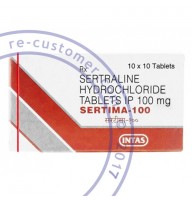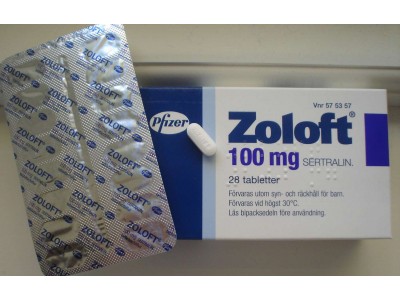When taking Zoloft, one of the most common concerns among patients is weight gain. Understanding how long it takes for weight gain duration on Zoloft to stabilize and eventually stop is crucial for those managing their mental health while trying to maintain a healthy body weight. This article delves into the Zoloft weight gain timeline, factors affecting it, and strategies to manage weight effectively.
Understanding Zoloft and Weight Gain
Zoloft, a commonly prescribed antidepressant, belongs to the selective serotonin reuptake inhibitor (SSRI) class. While it’s effective in treating depression, anxiety, and other mood disorders, many patients experience an unwanted side effect: weight gain. The question that arises is, "How long for Zoloft weight gain to stop?" The answer isn’t straightforward as it varies from person to person based on several factors.
How Long Does Zoloft Weight Gain Last?
The duration of weight gain on Zoloft can vary widely. For some, it might be a short-term issue, while for others, it could persist as long as they’re on the medication. Typically, weight gain starts within the first few months of treatment and may continue if not addressed. Patients often wonder, "How long does Zoloft weight gain last?" On average, it can take several months before weight gain reaches a plateau.
The Plateau and Reversal of Weight Gain
Many patients experience a plateau where the Zoloft weight gain stop time is reached. This period marks the stabilization of weight, meaning the rapid increase in weight has ceased, but weight loss might not yet have begun. This plateau can be frustrating, as it may seem that the weight gain is irreversible. However, with the right strategies, it is possible to reverse the weight gain, though it might require time and effort.
Factors Affecting Weight Gain Duration on Zoloft
Several factors influence the duration and extent of weight gain on Zoloft. These include:
1. Dosage and Duration of Zoloft Use
Higher doses and longer durations of Zoloft use are often associated with more significant weight gain. The body’s response to the medication can also evolve over time, potentially leading to increased appetite and changes in metabolism.
2. Individual Metabolic Rate
Each person’s metabolism is different. Some individuals may metabolize Zoloft more efficiently, minimizing weight gain, while others may experience a slower metabolic rate, leading to prolonged weight gain.
3. Lifestyle Factors
Diet, exercise, and overall lifestyle play a crucial role in managing weight gain. Those who maintain an active lifestyle and follow a balanced diet may find it easier to manage or even reverse weight gain, while others may struggle if lifestyle adjustments aren’t made.
Does Zoloft Weight Gain Go Away?
Many patients are concerned about whether the weight gain caused by Zoloft will go away. The good news is that it is possible for the weight gain to subside once the body adjusts to the medication or when lifestyle changes are implemented. However, the timeline for this varies. For some, the Zoloft weight gain reversal time can be a few months, while for others, it might take longer. Patience and persistence are key.
How to Stop Weight Gain on Zoloft
Stopping or reversing weight gain on Zoloft requires a multi-faceted approach. Here are some strategies:
1. Consult Your Doctor
The first step in managing weight gain is to talk to your doctor. They may adjust your dosage or suggest an alternative medication that doesn’t have the same impact on weight.
2. Focus on Diet and Nutrition
A balanced diet rich in whole foods, fruits, vegetables, and lean proteins can help mitigate weight gain. Avoiding processed foods, sugary snacks, and excess carbohydrates is essential.
3. Increase Physical Activity
Regular exercise can help offset the weight gain associated with Zoloft. Aim for a mix of cardio and strength training to boost metabolism and maintain muscle mass.
4. Monitor Progress
Keeping track of your weight, diet, and activity levels can help you identify patterns and make necessary adjustments. Regular monitoring can also motivate you to stay on track.
Conclusion: Patience and Persistence
Managing weight gain while on Zoloft can be challenging, but it’s important to remember that it’s a common side effect and can be managed. By understanding the factors that contribute to weight gain and implementing lifestyle changes, it’s possible to reach the point where Zoloft weight gain plateau and eventually begins to reverse. Always consult your healthcare provider before making any significant changes to your treatment plan, and be patient with the process.
In summary, the question "How long for Zoloft weight gain to stop?" doesn't have a one-size-fits-all answer, but with the right approach, you can manage and even reverse this side effect. Stay informed, stay active, and work closely with your healthcare provider to achieve the best possible outcome.

